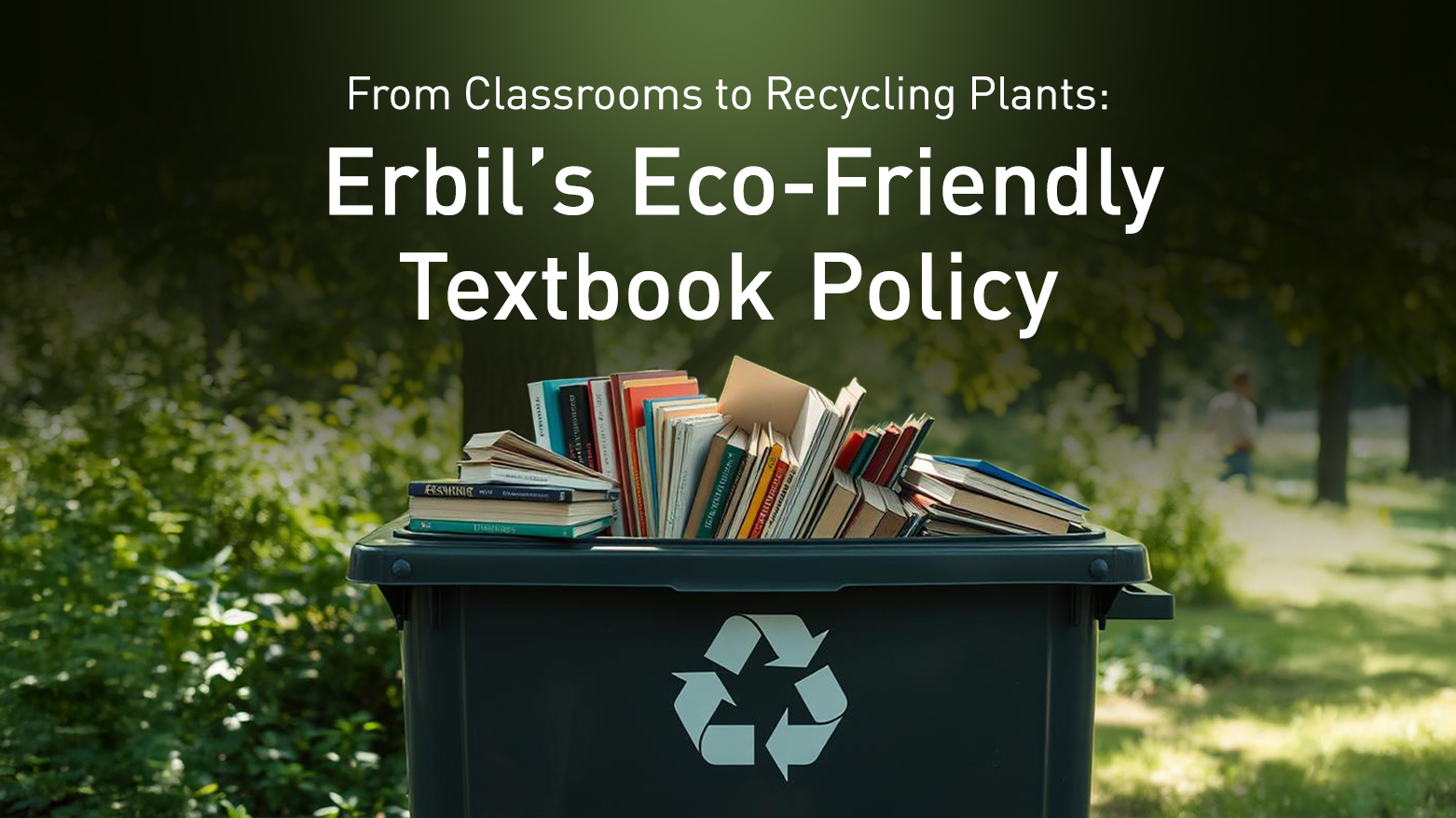From Classrooms to Recycling Plants: Erbil’s Eco-Friendly Textbook Policy
Sabir explained that in the past, the fate of such books was either burning or disposal. But today, due to the region’s increased attention to environmental protection, a new mechanism is in place.

ERBIL (Kurdistan24) — Schoolbooks that have outlived their usefulness in Erbil are no longer being discarded or burned, but instead are sent to recycling factories to be turned into paper and reused, according to local education officials.
On Sunday, Redar Sabir, Head of the Library Department at the Erbil Directorate of Education, told Kurdistan24 that textbooks distributed to students are printed with high quality, allowing them to be used for several years. “Eventually, they become outdated and lose their value,” he said.
Sabir explained that in the past, the fate of such books was either burning or disposal. But today, due to the region’s increased attention to environmental protection, a new mechanism is in place.
“Now, books are collected from schools, handed over to the Ministry of Education, and through public tenders sold to companies specialized in recycling,” he said.
He added that the same process applies to textbooks that are no longer used because of changes in curricula. A small number of copies are archived by the library department for reference.
“We keep copies of these books year by year to document changes in the education system and to improve it further,” Sabir noted.
Regarding the annual budget for printing new textbooks, the official clarified that there is no fixed amount. “We print according to need,” he said. “Sometimes we don’t require large volumes for several years, since the initial prints are of high quality and can last for a long time.”
KRG’s Commitment to Green Practices
The initiative reflects a broader commitment by the Kurdistan Regional Government (KRG) to environmentally friendly practices, particularly in waste management and recycling. Over the past decade, Erbil and other major cities in the Kurdistan Region have introduced projects aimed at reducing pollution, promoting green spaces, and encouraging the reuse of materials.
The KRG has launched the Greenbelt project to create a natural buffer around Erbil city, developed pilot projects in solar and wind energy to diversify power generation, and introduced measures to modernize waste management through recycling and landfill reduction. KRG officials emphasize that linking education, urban planning, and energy reform underlines a strategic commitment to sustainable development in the region.
The recycling of textbooks is part of a growing emphasis on sustainable education practices. By minimizing waste and reintroducing materials into the production cycle, the KRG aims to reduce pressure on landfills and decrease carbon emissions caused by burning discarded paper.
In addition to recycling, the KRG has pursued eco-friendly initiatives such as expanding tree-planting campaigns, building waste-sorting facilities, and raising public awareness about the importance of protecting natural resources. The government has repeatedly stressed that preserving the environment is not only a policy priority but also a necessity for ensuring a healthier and more sustainable future for the Kurdistan Region.